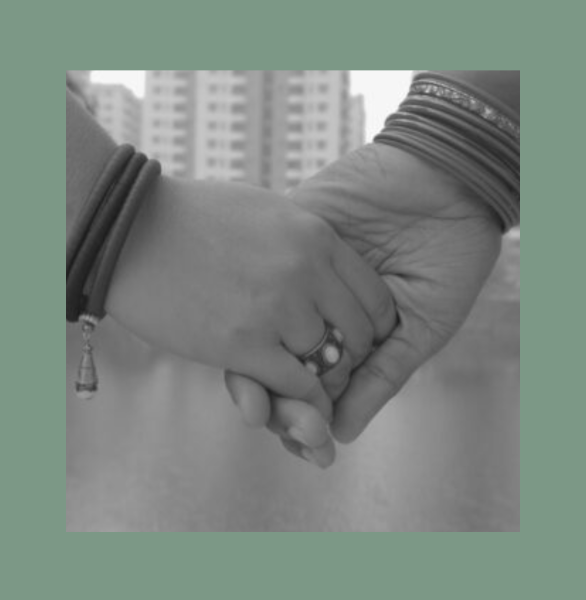Monitoring, Evaluation, and Learning should center care, trust and flexibility

CMI!’S ‘MEL Matters’ Conversations With The UAF Sister Funds
The current Monitoring, Evaluation and Learning (MEL) practices followed by mainstream funders have significant barriers and risks. The most noticeable ones involve how it creates extra burdens for women and girls, puts their safety and security at risk and silences their voices. Whereas feminist MEL can help examine power dynamics and structural inequities, uplift the stories of women and girls, actively engage women in the MEL process and shine a strong light on the change they catalyze.
The Count Me In! (CMI!) consortium, which supports structurally excluded women’s rights activists and groups worldwide, must challenge conventional MEL systems. As part of that journey, we talked to two of our members – Urgent Action Fund for Feminist Activism and Urgent Action Fund-Africa and explored how we can MEL better and in a feminist way.
CARE: A KEY DIFFERENCE BETWEEN TRADITIONAL AND FEMINIST MEL PRACTICES
“Traditional” MEL frameworks and approaches were developed by donor agencies, which are usually far removed from the contexts they are funding. The emphasis is on reporting, accountability and performance of time-bound programs to ensure they meet their objectives and intended outcomes. In recent years, there has been an increase in funding for social change which is a complex process and requires sustained support. The social change process significantly differs from most NGO/development-centric approaches that traditional MEL systems were developed to respond to.
Traditional MEL tends to focus on the linear ways change may happen and often does not factor in the complex pathways that change may happen, as well as how contexts can deeply impact the change process.
It also does not centre the voices and knowledge of the people and communities impacted in defining or identifying what changes matter to them so that their voices can translate into outcomes and indicators reflecting their experiences and progress. Traditional MEL can be one-sided and extractive in how information and findings are shared and used, including not sharing back learnings or findings with individuals and community members.
It, therefore, demands organizations and activists to report in a way that becomes burdensome for them, fails to capture the nuances and focuses more on quantitative data than qualitative data.
The Urgent Action Sister Funds (UAF Sister Funds) recognize that reporting is critical to MEL. But they practice it in a way that puts the well-being of their partners above everything. They try to keep reporting light and flexible according to the needs of their partners. Grantee partners may not have access to laptops or stable internet, or they may be facing varying degrees of threats or violations. How are they supposed to write a 10-page report in such contexts? In such cases, the UAF Sister Funds have a practice of calling grantee partners to ask key questions to track change.
Another example of their feminist MEL practice is to avoid re-traumatizing grantee partners by having them report back on their adverse circumstances. In this case, reporting can be harmful to their mental health.
SAFETY AND SECURITY COME FIRST
Another component of care in feminist MEL practices is to be careful about the partners’ safety. Donors often ask for data that may put activists and human rights defenders in danger, such as the names and contact information of at-risk activists who attended a meeting or pictures of events, which activists would prefer not to take in the first place.
Contrarily, the UAF Sister Funds prioritize the safety and security of their grantee partners in all MEL processes. For example, reporting never requires activists to share pictures as “proof” that events occurred and asks activists which sections of their reports should be kept confidential. They never share information on the location where the intervention happened to showcase impact unless they have permission from activists. The Sister Funds also use more secure email or text platforms with enhanced safety features, such as end-to-end encryption and two-factor authentication, or take the lead of the applicants in using what they consider more secure in their local context.
Image: Feminist MEL recognizes that the needs of women and girls must be at the centre. Therefore, it puts their well-being, safety and security at the forefront. That results in a caring, trusting and flexible MEL system. Photo Credit: CMI Consortium
CONTEXT IS KEY
The impact of interventions cannot be meaningfully measured without taking the context into account. Traditional fact and figures-driven MEL is often oblivious to the power dynamics and the layers of oppression that activists are living under. Donors also often demand quantitative results that do not tell the entire story of their activism and that do not explain the story, context and multiple factors that can impact interventions, activities and pathways to changes proposed. Without unpacking contextual factors, such as gendered structural inequities that are barriers to changes proposed, numbers do not tell the whole story.
A true understanding of the context also entails acknowledging the rapidly shifting nature of contexts and what that means in terms of sustainability. For example, substantial progressive gains often invite equally substantial pushback by conservative actors. In instances where pushback is successful, would we frame this as a “failure” of women’s rights groups to achieve progressive outcomes? How do we understand sustainability if we think that movements in some contexts can recede the strength they have had because of this pushback? These are some of the challenging questions feminist MEL grapples with. At the heart of these questions is acknowledging that social change is a messy process. Measures that assume linear change will fall short in telling the story of the ebbs and flows of how change happens.
The UAF Sister Funds’ MEL practices embrace context as one of the key factors in shaping outcomes. This understanding is one of the reasons why they do MEL through impact stories that capture the nuances of the work. Centering the wisdom of activists means that learning is practiced collectively. One way is through the use of convening as a strategy to create learning, reflection and sharing spaces that bring grantee partners together.
The UAF Sister Funds understand that social change is complex and takes time. They ensure that incremental achievements, including progress at the micro-level and little steps towards the collective vision, are acknowledged and highlighted, and every little step towards the collective vision is acknowledged and celebrated.
TRUST AND FLEXIBILITY SHOULD BE AT THE HEART OF MEL
The UAF Sister Funds often support their grantee partners with diverse funding sources, from private and public sources. In many cases, they are forced to ask for rigid reporting from their partners to fit into donors’ traditional MEL frameworks or log frames. They are questioned about their MEL practices, which include the question of rigor tied to “gold standard” approaches used in traditional MEL that are often more quantitative and development-focused.
Often, development-focused MEL is not compatible with capturing the nuances and complexity of the pathways leading to long-term changes because they tend to be more linear in how they frame pathways to change and prescriptive in identifying intended outcomes and indicators that are at the macro or policy levels but may not capture the incremental changes in people’s lives within a particular context.
Photo Credit: CMI Consortium
Whereas, in human rights and social justice, change is complex, non-linear, and often influenced by external changes in context that cannot be predicted or managed. Thus, feminist MEL principles and approaches provide the flexibility, trust and space to capture these complexities through the lens of those impacted by centering their experiences and knowledge. When this happens, learning becomes mutual and benefits both the community and donors, as they are able to see the benefits of feminist MEL to break down power dynamics between donors and grantees that can facilitate trust to learn together instead of seeing MEL as reporting for accountability only.
This conventional MEL system is not only harmful but also ineffective. If donors and governments want to get the best out of MEL for programs for social change, they need to have at least two components in their MEL system: trust and flexibility.
Governments, when they are funding through entities like the Urgent Action Sister Funds, need to trust these organizations’ honesty, knowledge and capacity. They also need to trust that activists spearheading change are the real experts who advocate for radical transformations with limited resources.
This trust will enable donors to be flexible in their MEL processes and meet activists halfway. Donors will be more careful about not imposing unrealistic expectations and be mindful of their safety and well-being.
EMPHASIZING, LEARNING AND BUILDING FEMINIST FUTURE
Feminist MEL allows to engage with, learn from and strengthen the constituents by prioritizing learning as central to the movement and the organization. As opposed to traditional MEL, Feminist MEL focuses on, among other things, dismantling established power structures in the community, giving marginalized women voices a platform, respecting their knowledge and opinions, and decentralizing learning.
Feminist MEL recognizes that activists are the real experts and that reporting, evaluation and learning processes should centre them rather than the needs and demands of donor agencies. We hope, someday, that donors promoting gender equality, democracy, and human rights will recognize and implement this vision of MEL that cares.
*About the UAF Sister Funds
The Urgent Action Fund Sister Funds were established 22 years ago to support the resilience of women and transgender human rights defenders through rapid response grants worldwide. Our model of rapid response grantmaking protects and advances the civil, political and social rights of women and LGBTI people and invests in social justice movements, including environmental, feminist, anti-corruption, land rights, peace, youth and LGBTI movements. Combining our holistic approach with our international network, we implement real-time grant-making with training, knowledge production and activities. This facilitates women’s leadership and improves safety for women’s and LGBTIQ+ movements while amplifying the voices and experiences of grassroots movements for equality, peace and justice. Equipped with autonomous models that are designed to consider the requirements of each region, we hope to continue building stronger webs of support for women and transgender rights defenders together across the world.
The blog is based on an interview with Huong Nguyen, Urgent Action Fund for Feminist Activism and Rosette Nanyonjo, UAF-Africa. Other contributors: Hiwot Tedla, UAF-Africa and Masa Amir, UAF-Africa.

